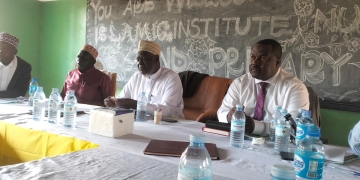
Uganda’s flagship satellite has been deorbited slightly over a year after it was launched.
The Minister of Science, Technology and Innovations, Dr Monica Musenero, revealed on Thursday, December 28, that the PearlAfricaSat-1, was deorbited after reaching its 13-month lifespan.
She revealed that this was due to constraints in its communication functions, internet and television services.
“The satellite could not do communication, satellite TV and internet. It only took pictures which we could use for geographical maps,” Dr Musenero said.
However, the satellite is said to have contributed data through imagery for geographical mapping.
But Dr Musenero said the government is planning to develop more satellites in the near future.
According to information from the satellite developers and the secretariat, PearlAfricaSat-1 was a cube satellite size 1U, the smallest satellite. The exact cost of development has not been revealed by the secretariat and the three engineers who developed it.
However, available information indicates that the government has already spent at least Shs7 billion on the programme. The government intends to spend a total of Shs104.5 billion to develop, launch, and operationalise two satellites, according to a draft budget for the national Innovation, Technology Development and Transfer Programme Implementation Action Plan for 2020 to 2025.
The satellite development, according to an internet search by this newspaper, costs somewhere between $500,000 (Shs2b) to $400m (Shs1.5 trillion), depending on size and what it can do.
The East African Community members states recently resolved to establish a joint communications satellite that will provide high-quality and dependable broadband Internet services and broadcasting capabilities.
The resolutions were contained in a joint communique that was issued after a four-day Ministerial Meeting for the ICT Infrastructure Development, which ended in Nairobi, Kenya, in November.
Uganda’s Minister of ICT and National Guidance Dr Chris Baryomunsi, chaired the inter-ministerial meeting while the ministry’s permanent secretary, Dr Aminah Zawedde, chaired the technical arm of the ICT Infrastructure Development Cluster.
Dr Zawedde is quoted as saying that since individual member states have developed satellite capability, they agreed that now is the time to set up a regional satellite to lower the cost of communication in the region.










